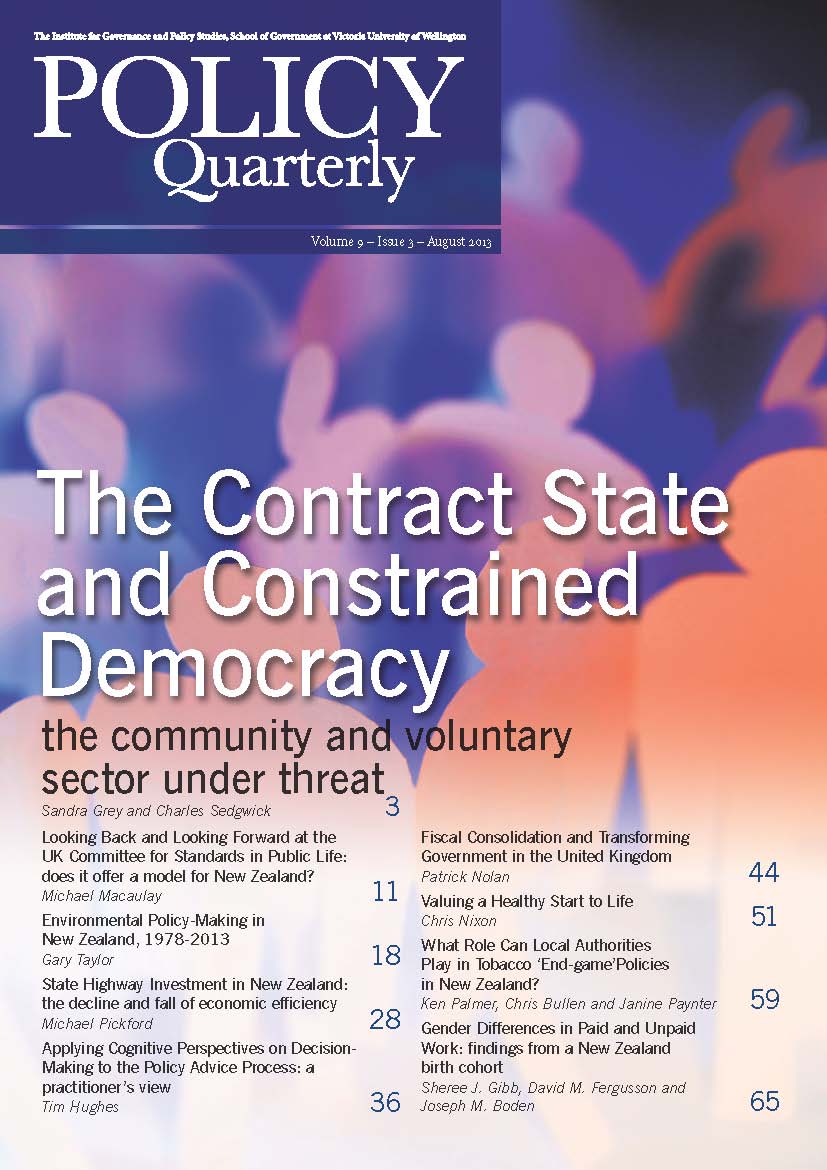Applying cognitive perspectives on decision-making to the policy advice process: a practitioner’s view
DOI:
https://doi.org/10.26686/pq.v9i3.4459Keywords:
Behavioural economics, Neoclassical economics, language of framing, ‘bias blind spot’, cognitive biasesAbstract
Behavioural economics and the related fields of cognitive and social psychology are now very much in the mainstream, as the highly visible success of the Behavioural Insights Unit in the United Kingdom attests. A robust and diverse range of findings about the limits of human thinking challenges policy practitioners to reconsider how they both design and advise on policies. This challenge is particularly relevant given that the training and background of policy advisors typically does not include these fields, with political science, law and conventional economics much more common.
Downloads
Downloads
Published
Issue
Section
License
Permission: In the interest of promoting debate and wider dissemination, the IGPS encourages use of all or part of the articles appearing in PQ, where there is no element of commercial gain. Appropriate acknowledgement of both author and source should be made in all cases. Please direct requests for permission to reprint articles from this publication to Policy-Quarterly@vuw.ac.nz.



